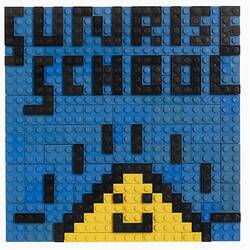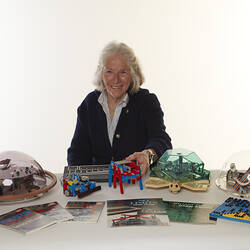Summary
This a digital copy of a U Matic recording produced by Melbourne College of Advanced Education for The Computer Education Group of Victoria. It one of a series of conversation starters for teachers around micro-computing, and how to access a remote database. Script was written by Liddy Nevile and Tony Adams. Technical Consultation by Mark Gunther. Camera / Lighting Tony Boyd & Keith Carroll. Edited and directed by John Mitchell and Brian Treanor. Scott Brownell and Sandra Oxley demostrate how to access ACI 's database at Clayton remotely using aussienet. Liddy Nevile and Tony Adams talking about Turtle geometry and what makes it so nature to use. They cover the concept of lists in processing information in Logo.
This audio file forms part of the Sunrise Collection which includes educational robots, software and multimedia recordings of teachers and students exploring new possibilities with computer programming.
More Information
-
Collection Names
-
Collecting Areas
Childhood, Information & Communication, Museum History, Social Spaces & Youth, Working Life & Trades
-
Producer
-
Person Depicted
-
Person Depicted
-
Recording Details
-
Content Summary
00:00:28 - 00:04:50 HH:MM:SS, Liddy Nevile and Tony Adams describe using LOGO to understand Total Geometry through the generation of spirals with changing variables.,00:04:53 - 00:13:05 HH:MM:SS, Tony discusses list processing functions in LOGO where lists can be used to generate and change stories through inputting different variables,00:13:06 - 00:17:20 HH:MM:SS, Tony and Liddy explore how the computer has list processing and can learn from rules - forming connections between relationships in the database.,00:17:25 - 00:20:25 HH:MM:SS, Writing a game in LOGO using animated turtles with a series of commands.
-
Format
Digital file
-
Classification
-
Category
-
Discipline
-
Type of item
-
Keywords
Robots, Robotics, Robot Components, Computers, Computer Software, Computer Games, Computer Peripherals, Electronic Learning Aids, Education Programs, Education Kits, Educational Technology, Schools, Technology, Education, Museum Victoria, Museums, microworlds, constructionism

